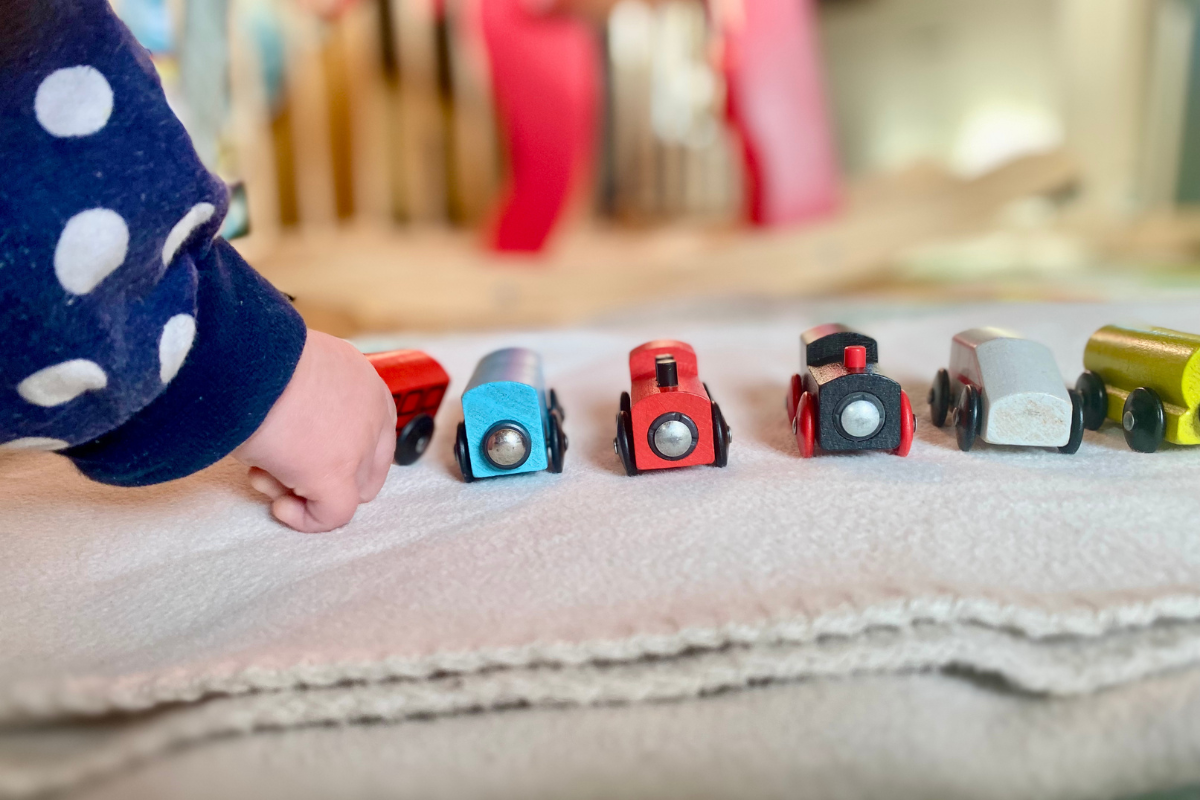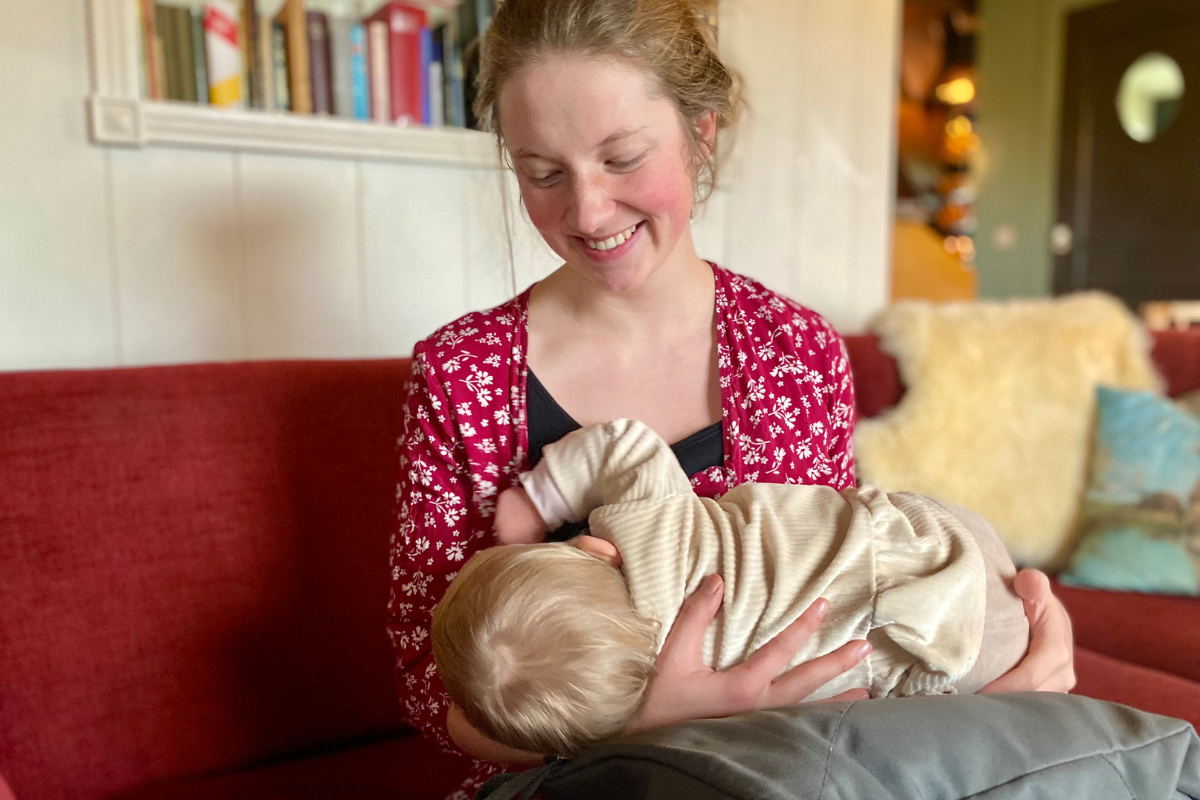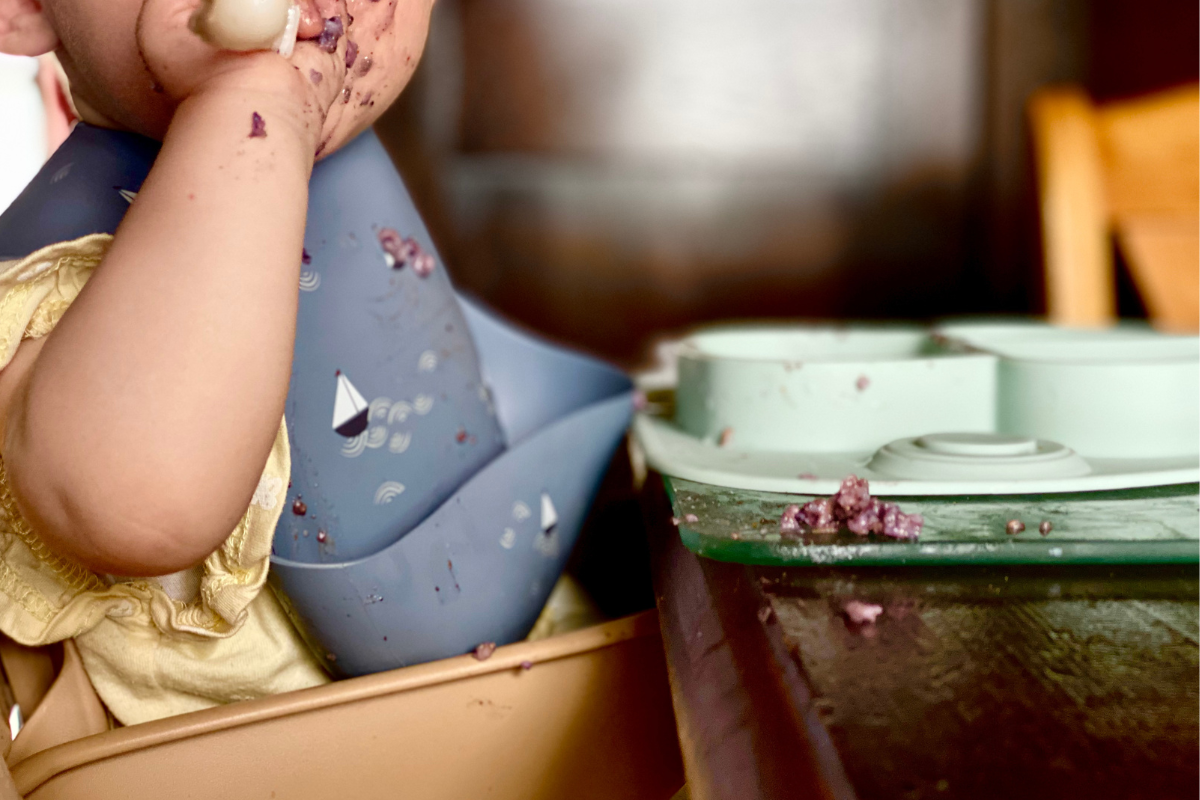Are cloth diapers worth it? Honest pros and cons (vs. disposables)
Do you want to know if cloth diapers are really worth it? Read my honest pros and cons of cloth diapers vs. disposables.
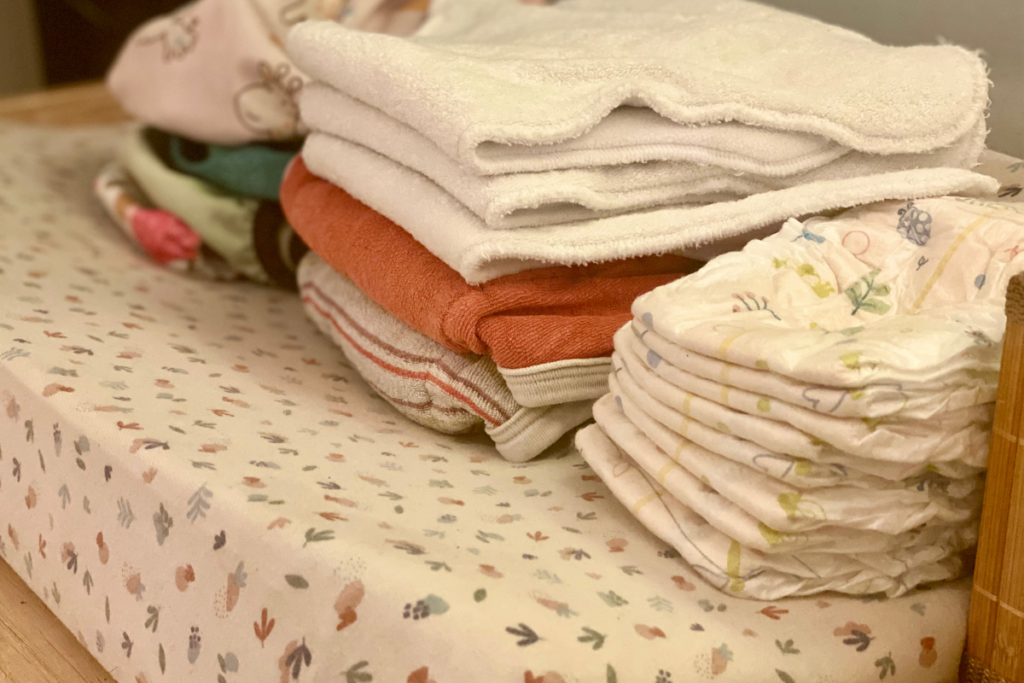
When did cloth diapers begin? History of diapers
The information in this section comes from an interesting article in nature. People in warmer climates used to ‘potty train’ their babies from birth. They responded to cues babies gave when they needed to go in order to hold them away from themselves to stay clean. People all over the world still use this approach to this day. It is called elimination communication. In colder climates care takers used fur and some natural materials as moss or shredded soft bark to keep baby’s dry and clean. This was the first documented diaper and the system we still have to this days in cloth diapers and in disposables.
Around the 1880s the safety pin was invented. This way you could rap cloth diapers around the waist of babies more tightly. In day care people washed cloth diapers industrially with harsh chemicals. That led to a high frequency of diaper rashes. They changed the soaps and the problem started to disappear again.
During the second World War people started using more and more disposable diapers. In this time they used cellulose as a disposable filling. It was not until 1960 that crylonitrile polymer was invited. The gel can absorb 100 times its weight without feeling wet. This made a huge difference in the use of disposable diapers, making them soon after the most used diaper in most of the world.
Pros and cons of cloth diapers: Environment
When thinking about the pros and cons of cloth diapers the environmental impact of any diaper often comes to mind first. The exploding use of disposable diapers did not only bring advantages. Especially landfill and solid waste are challenges since we mostly use disposable diapers. They need approximately 500 years to biodegrade. On average a child needs 6000 to 7000 diapers before it is potty trained. That is a lot of landfill for sure!
Disposable diapers produce 20 times more solid waste than cloth diapers. But solid waste is not the only thing that you can consider when you think of diapers. After all cloth diapers have to be washed frequently. That does cost energy and water too. According to research cloth diapers perform better when it comes to energy resource depletion, landfill and solid waste if you wash them at home. You do need more water though for production and usage than disposable diapers. If you wash the diapers industrially you save water but use more energy.
Thinking about water, energy, landfill and waste of the average use is certainly important. If you choose to buy your cloth diapers second hand, use renewable energy or recycling water you can make an even bigger positive impact on the environment.
Considering the pros and cons of cloth diapers the environment is definitely a big pro!
Pros and cons of cloth diapers: Costs
Do cloth diapers really cost less than disposables?
If you speak with others about the pros and cons of cloth diapers you hear often that cloth diapers are so much cheaper than disposables. Many people make calculations about the money you can save using cloth diapers. Honestly: I think many are exaggerating slightly there. I saw calculations where one diaper costs 50 cents and you change the diaper 8 times a day. That way you would spend almost 3000 dollars in the first two years. Well were I life a new born diaper is at it’s cheapest 11 cents and I don’t change my baby of nine months 8 times a day anymore!
The costs of cloth diapers highly depend on several factors:
- How often do you change your baby
- How early do you potty train
- How expensive are your disposable and cloth diapers
In my country costs for 5 diapers a day would be closer to 600 dollars for the first two years which is about the price of a set cloth diapers too. Even if you spend a little more than that in disposables you have to consider the fact that you most probably will not cloth diaper all the time. I use disposables at night since I don’t want to change my baby at night. If we are away for a night or more I often take disposables with me too in order to reduce our luggage. Therefore you will possibly still spend money on disposables even if using cloth diapers most of the time.
There is something else you should consider when thinking about the costs of cloth diapers. Disposables cost a little money every week whereas cloth diapers are a big sacrifice you have to make all at once.
How can you optimize the costs of cloth diapers?
All of that said, I still believe that you can save money using cloth diapers. If you buy your cloth diapers second hand you can reduce your costs significantly! I bought a complete set of cloth diapers for only 200 euros (approx. 215 dollars). Another advantage of used cloth diapers is that you don’t have to wash them multiple times before absorption is optimal. If you use your cloth diapers for more than one child the financial advantage is even bigger.
To sum it up on the pros and cons of cloth diapers on your finances I would say: it depends. If you use them consistently, buy them second hand and use them for more than one child you definitely can save money.
Pros and cons of cloth diapers: user friendliness
Washing cloth diapers
Mentioning the obvious: cloth diapers have to be washed regularly in order to be reused. This costs time and skills you don’t need with disposables. But let me say both time and how to wash them has never been a problem to me. You should wash your diapers every two to three days. In the meantime you store them in a closed container or even better a so called wet bag. You can put all the diapers into the washing machine without sorting something. Use a program at 140 degrees (60 degrees celsius) and choose the longest option. For me it works out pretty wel to fill one machine every three days.
Even if the washing is very easy and can go quickly I struggle with planning the washing still. If we leave for a weekend to visit my in-laws (and we visit them almost twice a month!) I have to plan the washing right before the trip. I don’t like to waste a whole cycle to only a few diapers so I have to plan well in advance when I wash the diapers in order to do the last cycle before we leave. If you are not at home more frequently too and don’t plan to bring your cloth diapers to other places you might have the same planning struggles.
Smell and waste
When you use cloth diapers you have to store them somewhere until you wash them. When discussing the pros and cons of cloth diapers we cannot ignore the smell of the used diapers right? I never struggles with smell in diapers when storing them for a maximum of three days in a closed container. When using cloth diapers I love to use disposable liners to collect potential poop. That way you can throw away the poop with liner right away which definitely helps to control smells a lot.
If you choose to use disposable liners think about a system to throw them away somehow next to your changing station. I use a closable container with both a waste bag and a wet bag to dispose both cloth diaper and liner as well as disposable wipes.
Are diaper changes with cloth diapers complicated?
If looking at the pros and cons of cloth diapers this for me really is a con. I don’t like to change diapers anyways. With cloth diapers it costs more time and diaper changes have to happen more frequently. My baby is very active and sorting all the different layers under her little baby butt while her legs and body are in constant movement are a challenge. Doing it every two to three ours definitely costs some focus and willpower on my end.
Another struggle is that in order to get the wet set of diaper into the wet bag you have to touch the dirty diaper with more than just your finger tips. This is the smaller struggle to me though since you can wash your hands afterwards.
Leakage with cloth diapers
Did you ever think: how can such a cute little baby produce such messy poop? Until we introduce solids we all fight the running poopy diapers of our little miracles.
My mom cloth diapered all of us four children fright from birth with so called ‘flats’. In their time this was by far the cheapest option and therefore she didn’t really had a choice. Since then cloth diapers changed too and leakage is much improved. I know people that used cloth diapers right from the get go. They didn’t report on mayor leakage problems. I tried them myself when my baby was 3 months old and it didn’t work for us. Therefore I decided to wait with cloth diapering until that 6 month mark. But to be fair: we had plenty of blowouts with disposables too.
Storage
In the list of pros and cons of cloth diapers storage would be another con to me. Even if I have a system now that works, I have to admit that cloth diapers do need much more space to store than disposables. Be sure to make that space somewhere at your changing station in order to not get overwhelmed.
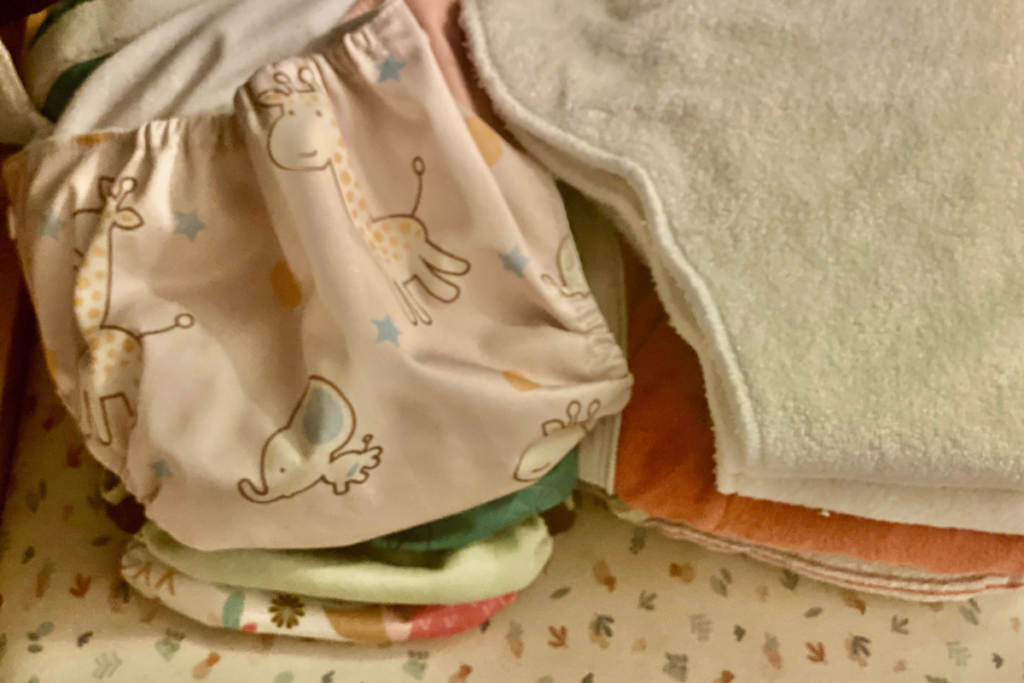
To sum up the pros and cons of cloth diapers and their user friendliness I definitely wouldn’t say that it is a pro. But honestly I think it is not such a huge con either.
Pros and cons of cloth diapers: Baby skin
There are different factors that influence the wellbeing of the baby’s skin when it comes to cloth diapers. On the pro side when using cloth diapers only organic natural materials will touch your baby’s skin. I personally think that this is a huge pro since many disposables bring your baby’s skin into contact with plastics other not natural materials. Further more I always kept the feeling that disposables contain all kind of things where I had absolutely no control over or knowledge of. This often is used as an argument why babies with sensitive skin should have less diaper rashes with cloth diapers.
At the other hand cloth diapers don’t absorb liquid as effectively as disposables. This will leave the baby skin in a wet environment more often. I have friends that stopped cloth diapering for this very reason. In my personal experience I have to pay more at tention to diaper rash using cloth diapers too. If I cream my baby’s butt in petroleum jelly at least every other diaper change her skin stays perfectly healthy.
Therefore I wouldn’t say that cloth diapers are only a pro or con for the baby’s skin.
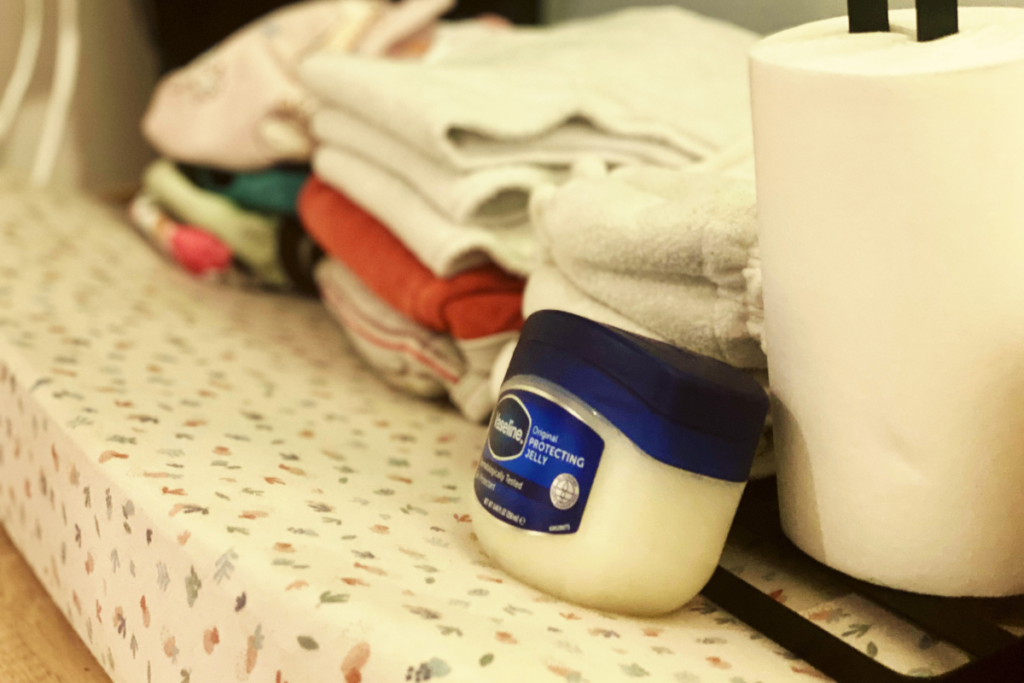
Pros and cons of cloth diapers: Potty training
It is commonly believed that children with cloth diapers are potty trained earlier than when disposable diapers were used. I couldn’t find much research about the subject, but there is a survey among 3000 parents that suggests exactly this. Their finding was that children that were cloth diapered 60% or more of the time were on average potty trained 9 months earlier than children were disposable diapers were used.
Another systematic review found the same tendency but also concluded that not much research was done on the subject.
The reason that children might be potty trained earlier when using cloth diapers was that they actually feel wet when they pee. Therefore they do it more conscious and can communicate it earlier. Whether this will be true or not for our baby has yet to be seen.
The con you didn’t expect
Even if I cannot know if you expected this con or not I certainly didn’t expect how much weight this reason had for me. In my opinion cloth diapers looked stupid on my newborn. She was so tiny and her clothes looked so cute on her. That bulky pack of cloths around her waist looked disproportional to her tiny legs and arms. The cute cloths didn’t fit wel and it looked restrictive on her movements too.
Even if this might sound like a minor thing compared to all the positive aspects of cloth diapers it definitely was a big con to me.
If you are determined to cloth diaper there are a few things to overcome that strange look of your little one:
- Use onesies rather than pants
- Choose a loose fit
- Comfort yourself with the knowledge: your baby will grow and the proportions will change
When I started to cloth diaper with 3 months I decided that this was not the right time for us just yet. Coming back to it at six months the diapers didn’t look as bulky anymore because our girl grew so much. Now with 9 months you couldn’t tell from a distance if she is a little chunkier or if she wears cloth diapers. I love to use a little looser onesies to hide the diapers even more and that eliminates the problem totally.
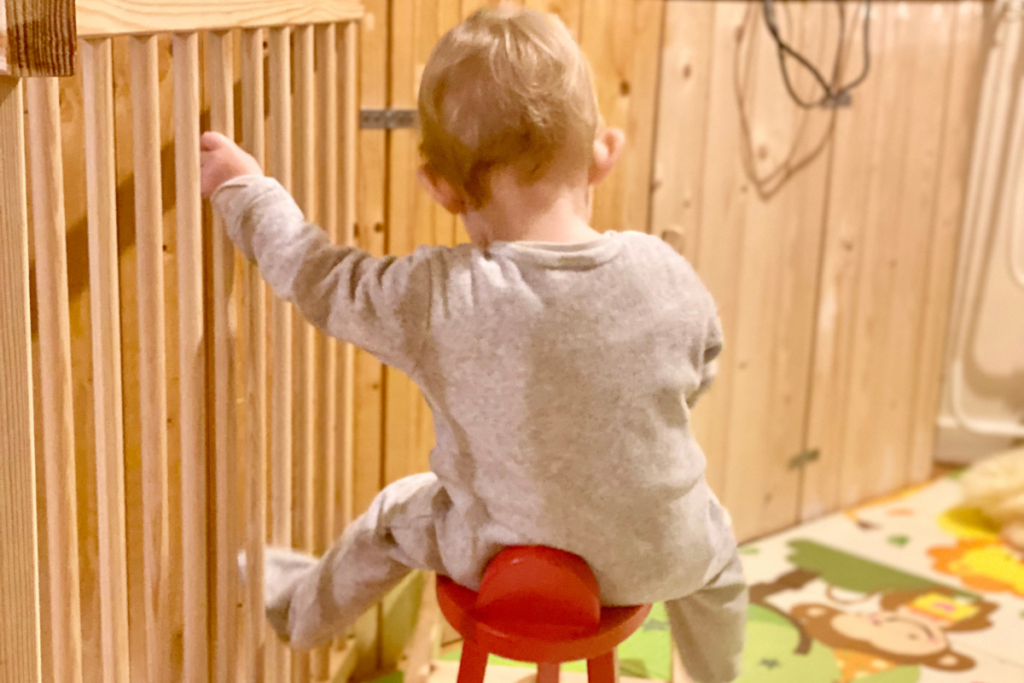
Pros and cons of cloth diapers: summary
With all the pros and cons of cloth diapers I listed the ones that were most important to me below:
Advantages of cloth diapers:
- Less waste
- More control over the materials they are made from
- Cost less if you buy them second hand
- No plastics or chemicals at the baby skin
- Potty trained earlier
Disadvantages of cloth diapers:
- Cost a lot at once if bought new
- More complicated and frequent diaper changes
- Diapers use more space
- More leakage in the first 6 months
- You have to wash them
- They look bulky on a little baby
What are your experiences or questions when it comes to cloth diapering? Write it down in the comment section, I would love to read all about it!

